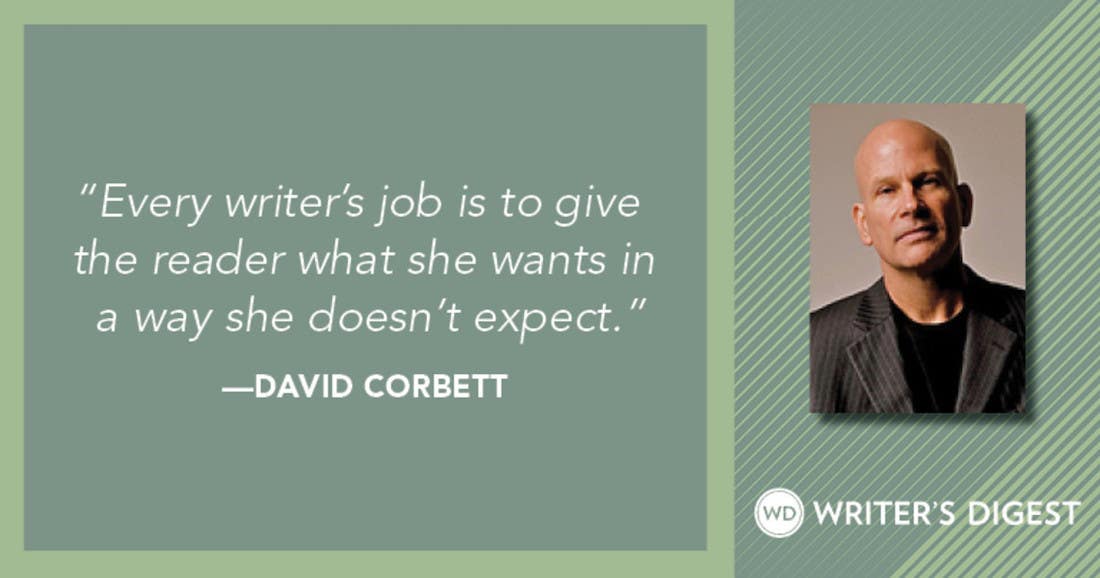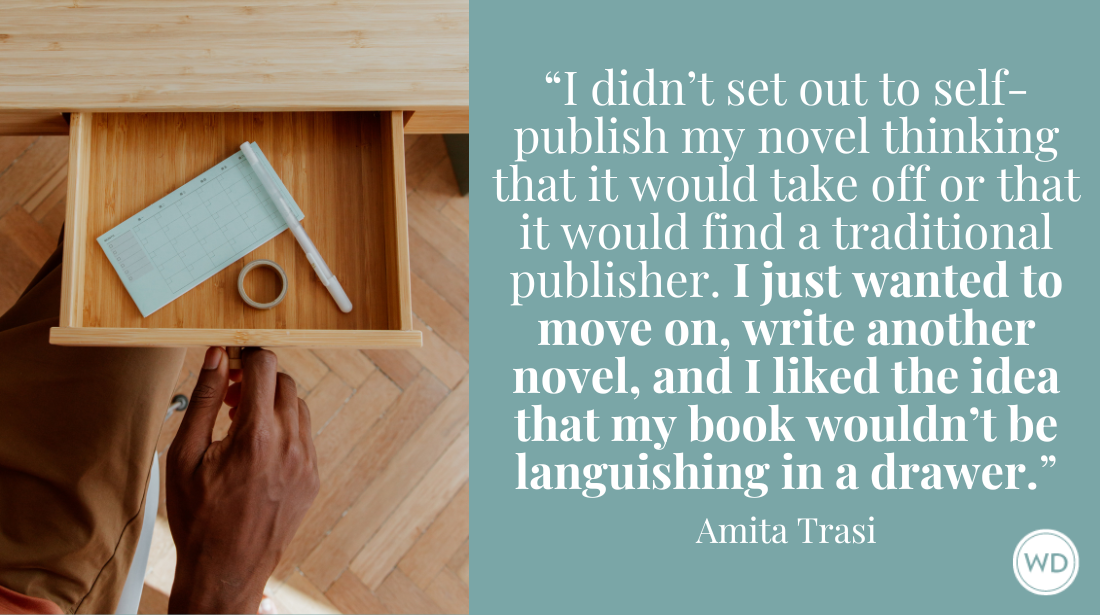Extended Q&A with WD’s Short Short Story Competition Winner
“The Removal” by Lauren Schenkman is the grand-prize winning story in the 17th Annual Writer’s Digest Short Short Fiction Competition. It bested more than 5,200 entries to win $3,000 and a trip…
“The Removal” by Lauren Schenkman is the grand-prize winning story in the 17th Annual Writer’s Digest Short Short Fiction Competition. It bested more than 5,200 entries to win $3,000 and a trip to the Writer’s Digest Conference in New York City, among other prizes. For complete coverage of this year’s awards, check out the July/August 2017 issue of Writer’s Digest. Click here for a complete list of winners from this year’s awards. You can read “The Removal” here. To read the top 25 stories from the competition, check out the 17th Annual Writer’s Digest Short Short Story Competition Collection.
Schenkman is a 30-year-old writer and former staffer for Science magazine. She recently spent a year in Nicaragua as part of the Fulbright Student Program, and she is currently at work on a novel about a Nicaraguan gold mine.
When did you start writing?
I had that classic thing where I probably wrote my first story when I was seven or eight. I think by the time I was ten, I was trying to write a novel. By the time I was in high school—this is a very common story for writers—I just kept trying to write, to do this crazy thing that I had no idea how to do. I’ve always been addicted to it.
What drew you to writing and science?
Being a very idealistic teenager, I thought, “Well, I want to know everything, so I’m going to major in physics, and I’m going to major in creative writing.” In a strange way, I think they have the same project. They’re trying to get at the same questions. Physicists are fundamentally trying to understand, “What are the laws that govern the universe?” and they’re probing the most mysterious, incomprehensible aspects of our existence. And writers are also probing the most mysterious, incomprehensible aspects of our existence, but they’re getting at it from a totally different way.
What have you learned as a writer from science and science writing?
The more we’re aware of what’s out there, the further we can push the boundaries in our own writing. The more experience you have and the more you know, the more tools you have and the more ways that creativity has to get out and express itself.
Describe your typical writing routine.
I use the Pomodoro method—25 minutes of absolute focus, then 5 minutes to stretch, wash the dishes, walk around, etc. I find that keeping email and phone turned off for long periods of time allows me to get into the depths of thought necessary to make progress. I write no matter how inspired I feel, which I think is important. Rather than waiting for inspiration to strike while I’m doing something else, I make a habit of sitting down every day, whether I feel like it or not. Sometimes inspiration doesn’t come until twenty minutes or an hour in; sometimes it doesn’t come at all.
Where do your ideas come from?
If you look at what I write, you can see where my own experience has come in, but I think, as a writer, everything you experience goes in there, everything you read goes in there, the news goes in there, stuff your friends tell you goes in there. And then your own preoccupations stir the pot, and what comes out is this thing that is maybe recognizable, and you can trace it to here or there, but it’s become strange.
Write a one-sentence summary of your story, describing it for someone who hasn’t read it yet.
A man, suffering from an unnamed malady, decides to have a drastic operation that turns out to affect much more than just his body.
What is your writing process?
[“The Removal”] was written for a good friend of mine who puts on these monthly writers salons. Her prompt was “only the essentials.” On purpose, I usually wait until the day of to write the story. It’s a process that’s changed for me a lot in just the past year. I thought I had to sit there and frown really hard, and the words would come out perfectly formed. That doesn’t lend itself to creativity because the inner critic is on full alert. Another friend suggested, “No matter what comes out in the first draft, write it down. No matter how stupid it is, no matter how embarrassing it is, you give yourself, or that part of you that’s writing, full permission to come up with whatever it wants.
What is your writing style?
I really try to make the style serve the story. Some stories come with a particular voice. I don’t think of myself as having a particular style, I just try to shape the style to the needs of the story.
What is your writing style in “The Removal”?
It has an overly educated, removed, intellectual voice. It sticks pretty close in third person to the main character. And he thinks a lot of himself, so that’s why it has this overwritten, intellectual vocabulary—even though he wouldn’t actually talk like that, that’s how he thinks about himself.
What drives your writing?
Curiosity, wonder, and thinking that being alive is the strangest, most ridiculous thing.
What are the best aspects of writing a short story?
It’s something you can hold in your brain because it’s small enough. Since there’s a short commitment, you sometimes feel less fear.
What are the most challenging aspects of writing a short story?
It has to be more muscular, more distilled. You don’t have any room to include something just because it’s interesting to you. Everything has to be serving the story.
What are your strengths in writing?
I feel like writers shouldn’t comment on their own strengths.
What do you strive for most in your writing?
Elegance, plotting and pacing, knowing what to include and what not to include.
What do you struggle with in writing?
I struggle with plot and conflict. I came to writing through a love of sensual detail and language, and I’m guilty of writing many a pretty, pointless paragraph. Thanks to great readers, I’ve learned to at least ask myself, “Is there a conflict here? How does this scene change the character’s fortune?” If there’s no conflict in that scene, it probably doesn’t advance the story at all, and needs to be cut.
What are you working to improve in your writing?
I tend to be overly wordy. My cousin, he’s a musician, he told me, “The way you do one thing is the way you do everything.” I’m the kind of person who—when I pack for a trip, I bring three extra outfits I don’t need, an extra pair of shoes, I think I’m going to read five books, I don’t even read one book. So I’m trying to get better at that, both with the packing and the writing. Because it’s so clear to me that I do the same thing in my writing—I over pack.
What can’t you live without in your writing life?
Community. Having people read my work and respond honestly. And knowing other people are doing this, too.
What is the best writing advice you have received?
The critic needs to be out of the room [during the first draft]. Also, from Elizabeth Gilbert’s Big Magic, don’t waste time wondering if you’re a writer or if you’re allowed to be a writer—just give yourself the permission slip.
What are your goals as a writer?
To be ever braver and stranger and freer. To articulate things for people that they have often thought but never been able to articulate for themselves. And to be in a position to be able to help expand the voices that we hear in writing.






